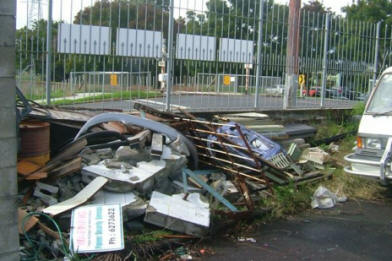Work Profile
In new building construction, the work of an
electrician is to ensure that all the electrical wires and cables are properly installed. It is mandatory under the law that only qualified electricians should handle the wiring of electrically equipped buildings, whether residential, commercial or industrial. When installing electrical systems, electricians are required to work with blueprints that specify the locations of load centers, panel boards, circuits, outlets and other electrical equipment. Electricians have to work in conformity with the National Electrical Code and the state and local building codes.
Nature of Work
While installing wiring systems, electricians place conduits in the walls, partitions and concealed areas, as per instructions in the blue prints. They fasten small metal or plastic boxes to walls for housing electrical switches and outlets and pull insulated wires and cables through the conduits to complete the electrical circuits between these boxes. They join the wires and cables in the boxes using special connecters. In course of their work, the electricians have to use tools like screwdrivers, wire strippers, hacksaws, conduit benders, knives and power tools like drills and saws.
The work of electricians who specialize in maintenance consists primarily of repair and the maintenance of electrical equipment and upgrading existing electrical systems. The actual work would vary, depending on where the electrician is employed. For example, in a home they may be required to rewire, remove an old circuit box or replace the existing one to accommodate additional equipment and install new fans. Maintenance electricians working in factories may need to repair transformers, generators, motors, machine tools and electronic controllers.
Working Conditions
Electricians have to work indoors and outdoors. Their work may take them to factories, homes, offices and construction sites. At times, the work may be physically demanding, such as bending conduits, stooping, standing and kneeling for long hours. They are exposed to weather conditions that at times could be quite inhospitable. In their course of work, electricians are exposed to the risk of injury from electrical shock, cuts and falls. To avoid these, they have to adhere to strict safety procedures.
Weekly Working Hours
Electricians work forty hours a week, but many do work overtime. Those attached to maintenance and repairs in factories are required to travel to the worksites at any time of the day or night, in case of an emergency.
Training and Qualifications
Most electricians are trained via apprentice programs that offer a combination of on-the-job-training and classroom instruction. The apprentice programs are sponsored by the local chapter of Associated Builders and Contractors and the Independent Electrical Contractor's Association or the joint training committees, comprising of local unions of the International Brotherhood of Electrical Workers and local chapters of the
National Electrical Contractors Association.
 Specializing in all residential electrical & lighting needs.
Specializing in all residential electrical & lighting needs.

